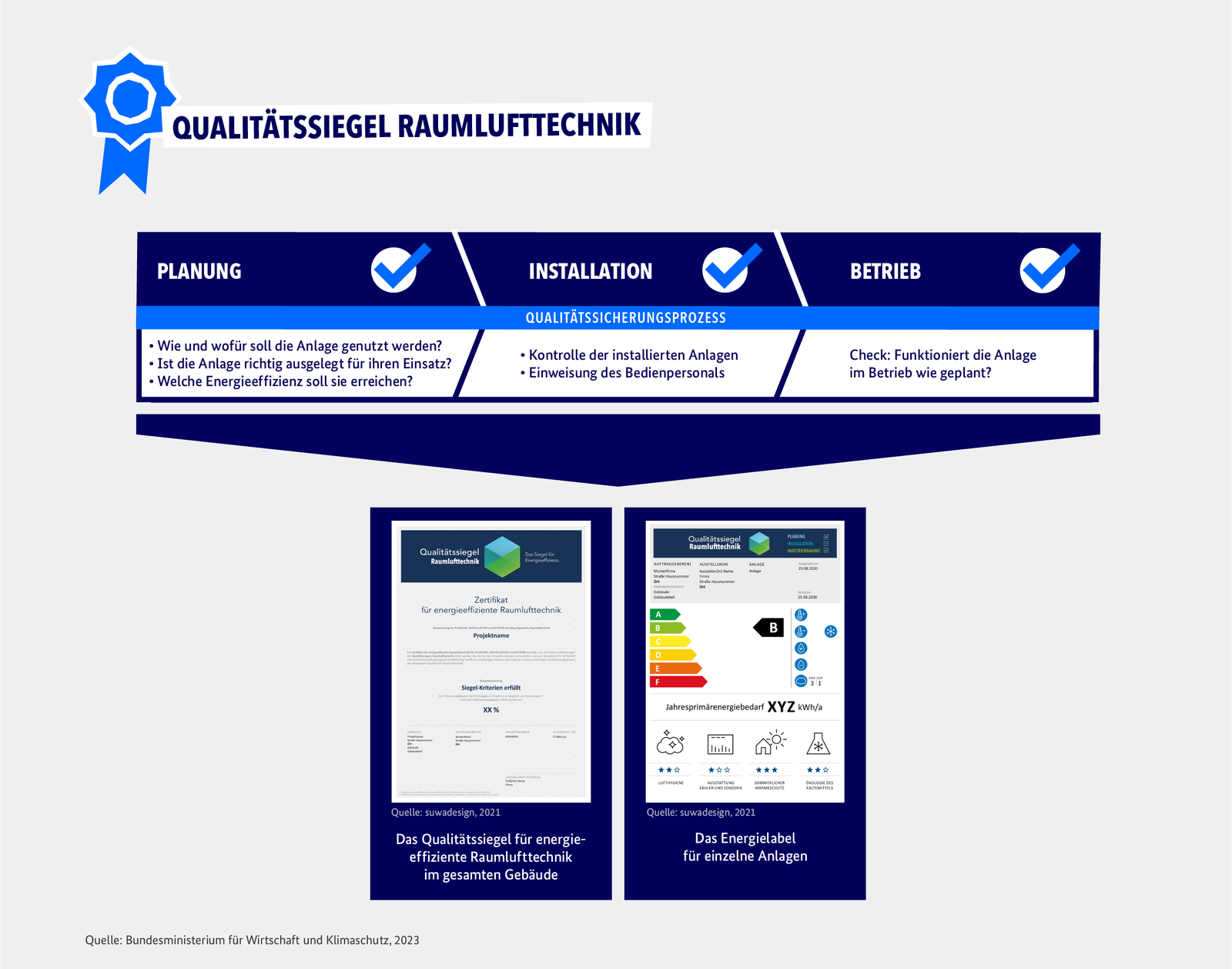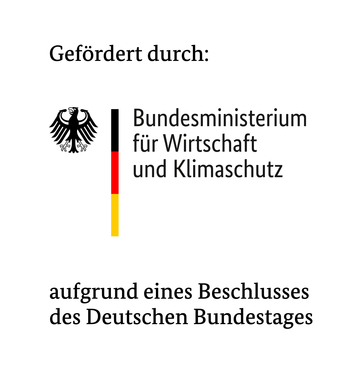You are here: Home / Consulting, Expert Opinions
Certification of efficient air conditioning and ventilation systems through the new "indoor air quality seal" for non-residential buildings

Good news for building owners, architects, general contractors and specifiers:
Whether in offices, schools, administrative buildings or swimming pools, the indoor climate quality label helps to optimise new systems in non-residential buildings. The sizing of the ventilation and air conditioning system and the distribution of the air flows are adapted to the individual requirements and general conditions. This saves energy and ensures good indoor air quality. The voluntary certification of new ventilation and air-conditioning systems is carried out in three software-assisted phases by independent experts.
Do good and talk about it... or show it!
"The "indoor air quality seal" makes the high energy efficiency of new indoor climate systems visible and tangible," says Ronny Mai, a member of the ventilation and air-conditioning department who helped develop the procedure at the ILK Dresden. The manual can be downloaded free of charge from the German Environment Agency (Umweltbundesamt-UBA) website.
What is certified and how - label and/or certificate?
The process certifies ventilation and air conditioning systems, including their refrigeration systems. An independent expert checks the design, installation and operation of all systems. An energy label is awarded to each individual system. It shows that a ventilation and air-conditioning system is operated efficiently, economically and sustainably. It is important that the systems are correctly designed for the specific use and that they are operated efficiently. A system that is too large and also ventilates unoccupied rooms wastes a lot of energy, even with an efficient fan. The quality label for ventilation and air-conditioning systems offers the assurance of high energy quality that is also proven in operation. The result is an energy label with essential information about the air handling unit, such as the efficiency class or the annual primary energy demand.
The award of the energy label is part of a three-stage quality assurance process:
- Design qualification
- Installation Qualification
- Operational qualification
The Indoor Climate Quality Seal can only be awarded to all ventilation and air-conditioning systems in a building if the energy labels of all individual systems show an efficiency class of at least B or better. This label indicates the stage of the quality assurance process at which the project is at, proving that all the systems in the building meet high energy requirements. An additional level of excellence certifies excellent compliance with the underlying criteria.
Click here for more information on the quality assurance process.
Who tests and awards the label?
The engineers of the ventilation and air-conditioning department of the ILK Dresden are independent inspectors and support all building owners, architects, general contractors and specialist planners. They will work with you to develop a technical solution and test it against the requirements of the Indoor Climate Quality Seal. Further trained specialists can be found through the Fachverband Gebäudetechnik (FGK).
Who should know about the label?
Industry players in the field of air conditioning and ventilation as well as technical decision makers in companies, municipalities and other public institutions, such as
- Specialist planning offices and inspectors with a focus on non-residential buildings and specifically on air conditioning and ventilation technology,
- Manufacturers and installers of air conditioning and ventilation equipment,
- Energy consultants and auditors
- Energy agencies,
- Energy experts,
- funding agencies,
- Technical decision-makers in (municipal) companies and local authorities
- the building industry,
- trade associations and
- chambers of commerce and trade
Further Projects - Consulting, Expert Opinions
Tribological investigations of oil-refrigerant-material-systems
Modified Almen-Wieland wear testing machine
Combined building and system simulation
Scientific analysis of thermodynamic processes in buildings and its systems





















